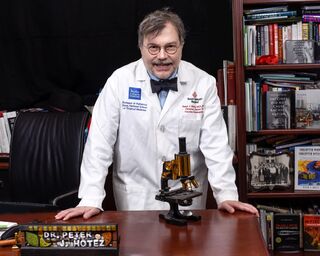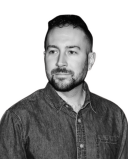Health
Combating Anti-Science Propaganda
We need a counteroffensive strategy.
Posted June 22, 2021 Reviewed by Chloe Williams
Key points
- The onset of the COVID-19 pandemic sparked an explosion of health misinformation, which the World Health Organization called an "infodemic."
- Anti-science groups are well-funded, well-organized, and have acquired a political dimension through political action.
- It's important to recognize that many individuals who espouse anti-science views have themselves been targeted with misinformation.
The onset of the COVID-19 pandemic sparked an explosion of health misinformation—the World Health Organization dubbed it an “infodemic.” In parallel with the triumphant development of safe and effective COVID-19 vaccines, we have also witnessed a simultaneous proliferation of anti-vaccine propaganda, which serves to undermine life-saving efforts to end the pandemic.
At the forefront of this ideological war, we have Dr. Peter Hotez, an internationally recognized physician-scientist in neglected tropical diseases and vaccine development. Dr. Hotez is dean of the National School of Tropical Medicine at Baylor College of Medicine, as well as the co-director of the Texas Children’s Hospital Center for Vaccine Development (CVD).

I’ve invited Dr. Hotez to offer some of his extensive insights into the topic of how to best combat anti-science propaganda and to discuss its psychosocial context.
Stea: Thank you for agreeing to this interview. There’s a section on your website called, “Combating Anti-Science.” Why is this topic important to you and how did you become involved?
Hotez: I started going up against anti-vaccine groups a few years after my youngest daughter Rachel—diagnosed with autism and intellectual disabilities—was born, and they alleged vaccines caused autism. Even early on, the preponderance of evidence showed that [autism] had genetic and epigenetic origins in early fetal development. After I wrote a book about it entitled Vaccines Did Not Cause Rachel's Autism, I became a target for anti-vaccine groups. But as a vaccine scientist and parent of an adult daughter with autism, I felt if I didn't do this, who would?
Stea: You recently wrote an article in Nature entitled "COVID vaccines: time to confront anti-vax aggression," whereby you call for a more organized, global response to anti-vaccine groups via the collaborative use of cybersecurity, law enforcement, public education, and international relations. What makes this strategy so important and how can it be transformed from an abstract idea to a reality?
Hotez: I think the public health community has made some mistakes over the last two decades through our silence. We were reluctant to speak about the acceleration of anti-vaccine groups for fear that we might inadvertently give them "oxygen."
The consequence, of course, is that they didn't need our help and grew into well-funded and well-organized groups that acquired a political dimension through political action committees, mostly linked to the political right and almost 60 million followers on social media, according to the Center for Countering Digital Hate. Complicating this is a state actor: namely, the Russian government. As I've said in my recent Nature, Scientific American, and PLOS Biology essays, this is a full-on anti-science empire.
Stea: The Russian involvement via computer bots and trolls to create international discord about vaccines certainly adds a fascinating, worrisome, and disturbing layer of complexity.
To say that you’ve received a fair share of targeted harassment for your advocacy efforts would be an incredible understatement. What has been the nature of the harassment that you have faced?
Hotez: I don't like to go into too much detail for security reasons. But I will say that as of late, I’ve received lots of aggression from the far-right and even White Nationalist groups, including lots of Nazi and Nuremberg imagery. These are scary times.
Stea: As you might know, I am a coalition member of the Canadian anti-misinformation social media campaign, #ScienceUpFirst, which was founded by Professor Timothy Caulfield and Senator Stanley Kutcher. The mandate of the initiative is to empower Canadians to work together against COVID-19 misinformation. In what ways can various health professionals and the general public come together to help counter anti-science messaging?
Hotez: I think it’s important to get educated with respect to the breadth and scope of these anti-vaccine and anti-science groups and to recognize that they now dominate the media and political landscape in some instances. It’s also important to recognize that many individuals who espouse anti-vaccine and anti-science views are themselves victims who have been targeted with misinformation.
Stea: Do you have any final words of wisdom for us?
Hotez: Things have gotten much worse in this time of COVID-19, particularly the political dimension both with respect to the political right and now Russia. We need to look beyond the health sector for help in how to counter this problem.




